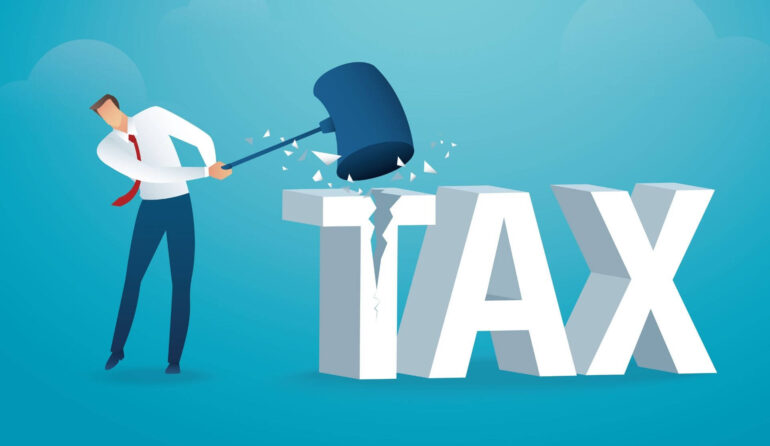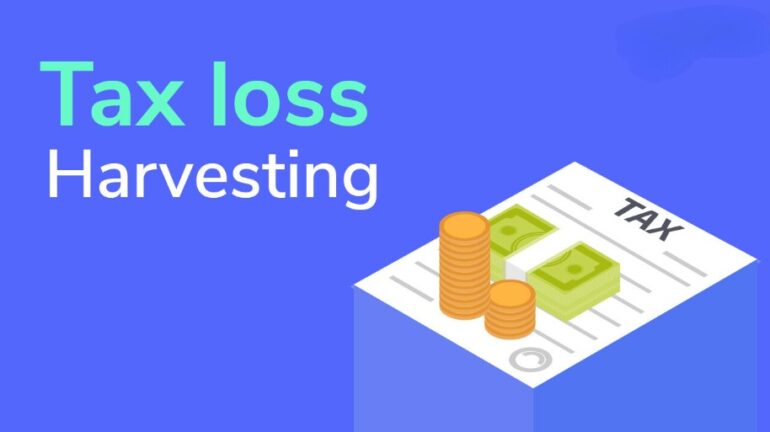Taxes are a fundamental aspect of our financial lives, shaping the way we contribute to society. However, with the right strategies, you can significantly reduce your tax burden and keep more of your hard-earned money. In this article, we’ll delve into a range of smart money moves that can help you navigate the complex world of taxes while maximizing your financial potential.
Introduction to Tax-Saving Strategies and Their Importance

Navigating the labyrinth of taxes can be daunting, but it’s essential to take control of your finances by employing effective saving and reduction strategies. These strategies empower you to optimize your financial situation, ensuring you don’t pay more than your fair share of tariffs.
By strategically managing your income, deductions, investments, and expenses – all woven into the fabric of these tax reduction strategies – you can safeguard your financial future and achieve your goals.
Understanding Deductions and Their Potential Benefits
Tax deductions are a powerful tool to reduce your taxable income. They come in various forms, such as standard deductions or itemized deductions. By carefully tracking and documenting eligible expenses like mortgage interest, medical costs, and charitable donations, you can lower your income, leading to reduced liability.
Leveraging Retirement Accounts for Advantages

Leveraging retirement accounts is a savvy approach to both securing your future and minimizing tariffs. Contributions to accounts like 401(k)s and IRAs often offer immediate benefits, reducing your income for the year. This not only aids in building a robust retirement fund but also results in a lowered tariff liability.
Additionally, these accounts provide tax-deferred growth, allowing your investments to compound without the burden of annual surcharges. As you strategize for a financially sound future, remember that these accounts aren’t just about retirement; they’re also powerful tools for optimizing your situation today and tomorrow.
Exploring Efficient Investment Options Like Index Funds
Navigating the investment landscape can be overwhelming, but efficient options like index funds offer a clear advantage. These funds aim to mirror market indexes, minimizing the need for frequent buying and selling, which can trigger capital gains tariffs. The result?
Lower liabilities for investors. Index funds also tend to have lower expense ratios, further enhancing returns. This makes them an appealing choice for those seeking long-term growth with reduced burdens. By exploring the realm of efficient investments, like index funds, you can align your financial goals with a smart strategy that keeps more of your earnings in your pocket.
Utilizing Tax Credits to Directly Reduce Your Tax Liability

These credits are like gold in the realm of taxes, directly reducing the amount of tariffs you owe. Unlike deductions that lower your income, credits provide a dollar-for-dollar reduction in your liability. Examples include the Child Tax Credit and the Earned Income Tax Credit. Understanding and claiming these credits can lead to substantial savings, especially for families and low-to-moderate-income individuals.
The Role of Charitable Donations in Lowering Taxable Income
Charitable donations offer a dual impact: supporting causes you believe in while reducing your income. When you contribute to qualified charities, you can claim deductions that lower your earnings. Donating appreciated assets, like stocks, can be particularly advantageous, as you avoid capital gains tariffs on the appreciation.
By strategically planning your philanthropy, you not only make a positive difference in the world but also optimize your situation. It’s a rewarding way to align your financial goals with your values while reaping the benefits of lower surcharges. Remember, your generosity doesn’t just impact the causes you support; it can also shape a more efficient financial future for you.
Timing Matters: Capitalizing on Tax-Loss Harvesting

Selling investments at a loss in order to reduce capital gains taxes on profitable investments is known as tax-loss harvesting. You can reduce your overall tax liability by carefully scheduling these changes. In unpredictable markets, this technique is especially useful since it enables you to convert investment losses into benefits.
Small Business Tactics: Writing Off Legitimate Business Expenses
If you’re a small business owner or self-employed, the code offers numerous opportunities to write off legitimate business expenses. From office supplies to travel costs, these deductions can significantly lower your income. Proper record-keeping is essential to substantiate these expenses, ensuring you stay on the right side of regulations.
Real Estate Investments: 1031 Exchanges and Benefits

Real estate investments hold a unique allure, and understanding tools like the 1031 exchange can amplify their advantages. This strategy allows you to defer capital gains taxes by reinvesting proceeds from one property into another.
This cycle of reinvestment can potentially lead to substantial growth in your real estate portfolio, all while postponing the bill. However, navigating 1031 exchanges requires careful adherence to IRS rules and timelines. Proper execution can result in significant savings, making real estate an attractive avenue for those looking to minimize liabilities while building wealth.
By leveraging the power of 1031 exchanges, you can strategically grow your real estate holdings and optimize your financial future.
Navigating Implications of Inheritance and Estate Planning
Receiving an inheritance can be bittersweet, but understanding the implications can make the process smoother. In many cases, inherited assets receive a stepped-up basis, reducing potential capital gains tariffs when you decide to sell. Proper estate planning can also minimize estate taxes, ensuring your loved ones receive more of your legacy.
Professional Advice: When to Consult an Expert
While these strategies offer valuable insights, the landscape can be intricate. There are situations where consulting a tax expert becomes invaluable. Complex investment portfolios, unique business structures, and significant life changes warrant professional guidance. An expert can tailor strategies to your circumstances, optimizing your savings while ensuring compliance with laws.
Conclusion
In conclusion, taking proactive steps to minimize your burden is a smart financial move that can significantly impact your wealth accumulation and preservation. By understanding deductions, leveraging retirement accounts, making strategic investments, and utilizing credits, you can make your money work harder for you.
Moreover, factors like charitable giving, timing your investment decisions, and expert advice all contribute to a comprehensive tax strategy that ensures you keep more of what you earn. So, seize control of your financial destiny by implementing these proven tax-saving strategies today. Your wallet will thank you tomorrow.
